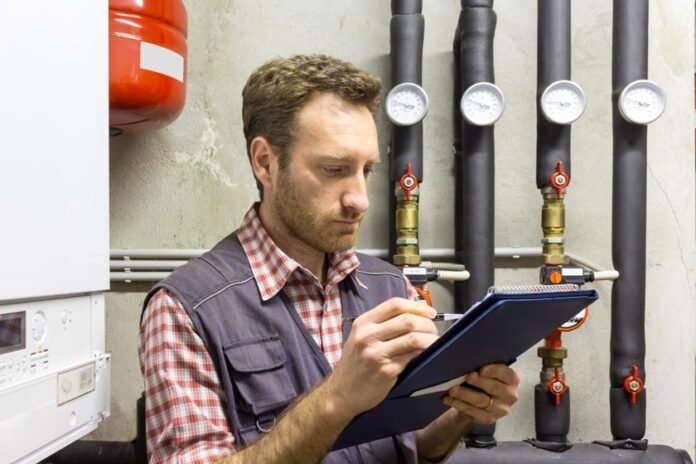Building or remodeling a house is not a simple undertaking. It’s not just one task. Homes are complicated structures with systems that affect everything from beauty to safety – a process that is often overlooked.
When building your home, you have to conform to a variety of construction codes, and it is critical that you are familiar with all of them in order to remain within the law. Understanding plumbing rules is especially critical for the most popular upgrading tasks, such as kitchens and bathrooms. So continue reading to learn everything you need to know about construction and plumbing codes if you’re building or remodeling your house.
What are Construction Building Codes, and why are they important?
Building codes help to protect the safety of residential and commercial buildings by enforcing certain criteria that improve the built environment.
These standards address a variety of problems including materials, structural height, the building’s location on the site, its interface with the street, resiliency in dangerous circumstances, security features, fire protection systems, and building escape access.
Construction rules may appear to be needless governmental requirements, but they serve a vital and valid public purpose. Beyond personal health and safety, building inspectors look for danger protection measures to help minimize natural disasters and speed up recovery.
What are the various types of building codes?
- Residential codes govern the construction of houses.
- Commercial structures have their own unique code.
- Plumbing codes manage the water and sanitation systems.
- Mechanical codes regulate HVAC and water heating systems.
- Fire prevention standards govern safety systems in both residential and commercial buildings.
- Energy codes establish the energy efficiency criteria for homes and buildings.
Are building codes laws?
Building codes are laws issued by state and local governments that can result in fines if broken. If a building does not fulfill local plumbing code requirements, it may be deemed an offense and potentially condemned by the city or county building inspector.
Who enforces the building codes?
The regulating body that enforces building codes is known as a code official or building official. These are either individuals or organizations known as “authorities having jurisdiction,” or “AHJ.”
Depending on the state and municipality, building inspectors may work for the building department, a local fire department, the county sheriff’s office, or a building division of the state fire marshal’s office.
Who writes the building codes?
Municipalities frequently use model codes as the foundation for local codes. Industry specialists provide input when developing model codes.
Building codes are important to everyone involved in the construction industry. Given the intricacies and ever-changing nature of construction, this is a significant advantage.
To avoid anti-competitive actions, the most responsible model code organizations strike a balance between sector competence and third-party oversight.
IAPMO and NFPA are two examples of responsible model code bodies. IAPMO creates the Uniform Plumbing Code (UPC) and the Uniform Mechanical Code (UMC), whereas the NFPA creates the National Electrical Code.
When Did Building Codes Begin?
The first known construction code is attributed to King Hammurabi of Babylon in 1758 B.C. It said that if a dwelling fell and killed a resident, the builder would be executed.
The US has never had such severe fines, but US construction standards were created for the same reason: to safeguard public health and safety. Major disasters, such as the Chicago Fire of 1871, emphasized the importance of establishing minimum construction standards.
Indeed, big calamities like 2021’s Texas winter storm Uri and the devastating Surfside condominium collapse continue to increase the need for building regulations.
Enforcement evolved in a parallel manner. The IAPMO and NFPA were among the first organizations to establish model codes to promote harmony among home and building owners, builders, and plumber
Requirements for New Construction and Renovation:
When it comes to new constructions and renovations in Las Vegas, precise plumbing criteria must be satisfied to ensure compliance with plumbing codes and regulations and in this situation Builders, contractors, and plumbers must stay up to date on the latest regulations to maintain compliance.
Permitting:
Before beginning some sort of plumbing work, obtain the relevant permits from the local authorities. Permits ensure that the proposed plumbing work satisfies the prescribed criteria and is properly inspected.
Drainage and Sewer Systems:
Adequate drainage and sewer systems are essential for effective wastewater management. Las Vegas’ plumbing rules specify the criteria for designing, installing, and maintaining drainage and sewer systems, including pipe sizing, slope, venting, and backflow prevention.
Water Supply Systems:
Plumbing standards provide recommendations for the installation and maintenance of water supply systems, including pipe materials, sizing, pressure regulation, and water-saving techniques. Compliance with water-efficient methods is becoming more crucial in addressing the region’s arid climate and promoting sustainable water use.
Fixtures and Appliances:
Plumbing rules set standards for plumbing fixtures and appliances to assure their safety, efficiency, and hygiene. These standards may include requirements for toilets, faucets, showers, water heaters, and irrigation systems.
Accessibility:
Plumbing systems should be built to be accessible to everyone, including people with impairments. Las Vegas plumbing standards include guidelines for accessible plumbing fittings, clearances, and maneuvering spaces to ensure compliance with the Americans with Disabilities Act (ADA).
What Are the Consequences of Breaking Local Plumbing Codes?
We are discussing not only your and your family’s health and safety but also the resilience of your community. Fines and other penalties may be imposed at the local level. In the case of a tragedy, your insurance provider may deny claims if they discover infractions.
How Can You Ensure You Follow All Plumbing and Mechanical Codes and Regulations?
For new construction or substantial remodels, expect to need a building permit(s) at several stages of construction, including the foundation and frame stage, electrical stage, plumbing stage, and final inspection.
To avoid inspection issues, keep the following points in mind:
- Before beginning construction, make a detailed plan for your project. If the extent of your project necessitates permission from the local authorities, include a list of all the products you will be employing in your application. This allows the building department to confirm during the plan check phase that all of these have been approved by one of the product certification bodies as satisfying applicable codes and standards.
- Most building departments contain “Administration” as the first chapter in their building codes, which explains how to appeal a product denial.
- Before hiring a contractor, check with your building department to see what code requirements apply to your project. If you’re building or renovating without a contractor, make sure you understand your responsibilities as a homeowner.
- Make no building changes without a building permit, as doing so can result in a code violation.
- Hire a licensed plumbing contractor. When interviewing prospective plumbers, inquire about their knowledge of local mechanical and plumbing codes. Avoid cooperating with any construction professional who thinks they can evade the local regulations.
Conclusion
Plumbing laws and regulations in Las Vegas are important to ensuring the safety, reliability, and efficiency of the city’s plumbing infrastructure. Compliance with these rules assures occupant safety, prevents plumbing problems, and encourages sustainable practices. Sin City Plumbing takes pleasure in remaining up to date with industry norms, Las Vegas city rules, and Nevada legislation in order to give our Las Vegas customers the best service possible.












